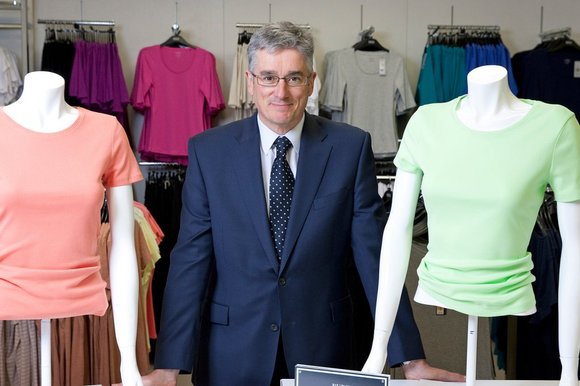Sustainability Lawyers Lead Role As Companies go Green

In an article in todays Sunday Times, Carly Chynoweth reports on a new survey by the law firm Bond Dickenson found that sustainability is now a key part of lawyers job description, and this could help them move into broader roles as business advisers.
The full article is reproduced below. Jeremy Barnett is an expert on Climate Change and sustainability law and advises firms and individuals as Independent General Counsel.
Lawyers blossom as companies go green
Sunday Times 11.5.2014.
Stiffer regulation is creating a bigger role for legal advisers
Carly Chynoweth Published: 11 May 2014
Sustainability is changing everything and that’s certainly the case for in-house lawyers, who could soon be playing a lead role in shaping their companies’ strategies.√جª¬ø
In a new survey by the law firm Bond Dickinson, a third of the lawyers questioned said their job descriptions had changed to include sustainability, corporate responsibility and ethics.
This could help them move into broader roles as business advisers, according to Victor Tettmar, an executive partner at Bond Dickinson. “Sustainability presents real opportunities for in-house lawyers to make a valuable commercial contribution beyond purely legal issues,” he writes in Beyond Responsibility, about the emerging role of legal counsel in sustainable business.√جª¬ø
“It isn’t just the preserve of environmental specialists. Whether you are the general counsel of a global insurer or the employment specialist for a manufacturer, your business will face more material and complex challenges and opportunities in sustainability.”√جª¬ø
Bond Dickinson’s research suggests that thinking about business sustainability — in other words, what supports long-term success, such as ensuring that environmental damage does not affect supply chains — is becoming central to companies’ strategies.√جª¬ø
“A lot of sustainable business issues are being driven by legal and regulatory changes, which means lawyers are in a good position,” said Tettmar. “They are dealing with compliance and risk, so there is a broadening of the legal role happening anyway, but I think that has been extended by the development of sustainable business issues. Corporate social responsibility used to be the gloss that made business acceptable . . . [but now] it’s a core strategic issue.”√جª¬ø
Most in-house lawyers will find that questions about business sustainability come into play alongside risk management, said Anna Ponton at Odgers Berndtson, the recruitment firm. “A good general counsel would tell the board [if] it was at risk of dealing with the wrong sort of people who could affect the company’s reputation.”√جª¬ø
Sustainability is not the biggest part of Robert Ivens’s role as head of legal at Marks & Spencer, but it is increasing. “It has changed,” he said. “Three to five years ago, questions about sustainability would have been much less common for us as a legal team. What’s happened over that time is that we have seen Plan A (the name of M&S’s sustainability strategy) come onto the agenda.” For example, one of his team was central to the development of new shop leases that incorporate environmental commitments and that end up saving money.√جª¬ø
“To me, [sustainability] is hard-headed business sense, because it benefits the company in so many ways,” said Ivens.√جª¬ø
This wider strategic brief is making corporate roles more appealing, he added. “The reason lawyers in private practice want to come in-house is because they can be much more involved in business decision-making as well as providing legal advice.”√جª¬ø
According to Ponton, in-house lawyers are increasingly being expected to step beyond their old limits. “Every client we talk to says, ‘I don’t want someone who will be a tick-box lawyer. I want someone who will be my business partner . . . rather than just being someone who tells me I can’t do something.’√جª¬ø
“The Bribery Act 2010 has caused all sorts of problems for some organisations because it is so tough on what companies can and cannot do. Lots of organisations working globally have always had what they called facilitation payments in various parts of the world, just to smooth the way, and these things now simply cannot be done. A good lawyer can work through how they can still do business.”√جª¬ø
However, some boards still see lawyers simply as a source of legal advice, Ponton said. “They will usually attend board meetings but they do not sit on the board. This is the opposite of what happens in America, where the chief legal officer is the chief executive’s right-hand person.”√جª¬ø
There are signs of change here, with a gradual increase in willingness to include senior lawyers on the executive team, she added. “And we are trying to introduce the idea of lawyers making good non-executive directors.√جª¬ø Lawyers do ask the difficult questions and they persist in trying to get to the root of things, and people realise that there is value in that.”√جª¬ø
Jeremy Barnett is an expert in Climate Change law and sustainability. He is speaking at the Energy and Environment Expo, 17, 18.19 June at Execl, London.
Click here to read an article on Jeremy’s presentation to the Bejing Symposium on Energy Storage
Click here to read about the advantages of appointing an Independent General Counsel.


